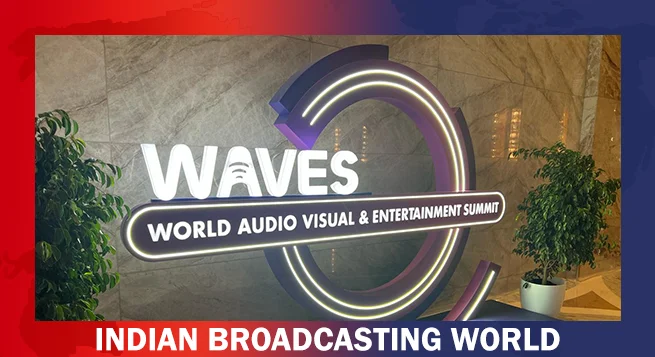The Indian government earlier this month has proposed shuttering of Intellectual Property Appellate Board (IPAB) in favour of normal courts to decide IP-related issues, which also impacts the Indian media and entertainment sector, apart from other businesses.
A draft Bill introduced in Lok Sabha or Lower House of Parliament towards the end of the present Budget session, amongst other things, says: “…the words `Appellate Board’, wherever they occur, the words `Commercial Court’ shall be substituted (ii) the words `constituted under section 11 whose decision thereon shall be final’ shall be omitted…in the Chapter heading, the words `AND APPELLATE BOARD’ shall be omitted…”.
Experts say this Bill, as and when passed by Parliament, will usher in closure of the IAPB, which was a dedicated body to take up and adjudicate on intellectual property matters. The Supreme Court recently had dismissed an application that sought extension of the incumbent IPAB chairperson.
This particular Bill is called the “The Tribunals Reforms (Rationalisation And Conditions Of Service) Bill, 2021” and, apart from suggesting closure of some tribunals, IPAB’s powers is being proposed to be transfered to high courts (for patent, trademarks, GI, Plant Varieties related issues) and to commercial courts (for copyright matters).
Tribunals are generally set up to speed up the process of litigation in certain specialized sectors. For example, the National Green Tribunal in India oversees environment-related issues and has passed some important orders impacting projects and relevant issues like pollution.
Meanwhile, the Commerce Ministry has also initiated a process, including public consultations, to amend the Copyrights Act as part of government’s endeavor to overhaul and upgrade antiquated Indian laws. For example, many segments of the M&E sector is still guided by the Indian Telegraphic Act of 1885, which is an enabling legislation that governs the use of wired and wireless telegraphy, telephones, teletype, radio communications and digital data communications.
 Pay TV leaders chart course for India’s linear TV in digital age
Pay TV leaders chart course for India’s linear TV in digital age 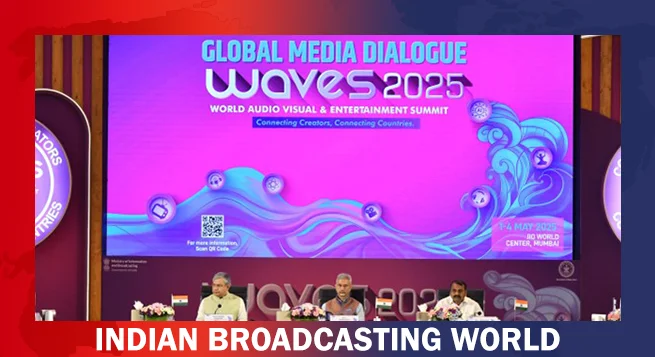 WAVES 2025: Media dialogue backs creativity, heritage & ethics in AI Era
WAVES 2025: Media dialogue backs creativity, heritage & ethics in AI Era 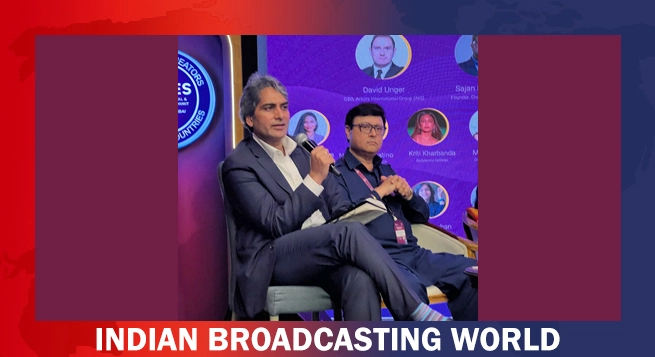 Sudhir Chaudhary announces new show for DD News, says “Good content still has a place” at WAVES 2025
Sudhir Chaudhary announces new show for DD News, says “Good content still has a place” at WAVES 2025  India can lead global entertainment revolution: Mukesh Ambani
India can lead global entertainment revolution: Mukesh Ambani 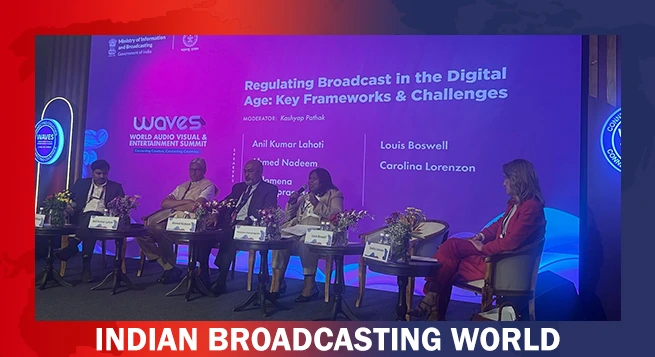 TRAI chief not in favour of separate rules for OTT, legacy b’casters
TRAI chief not in favour of separate rules for OTT, legacy b’casters  Stakeholder alignment media’s big media challenge: BARC Chairman
Stakeholder alignment media’s big media challenge: BARC Chairman 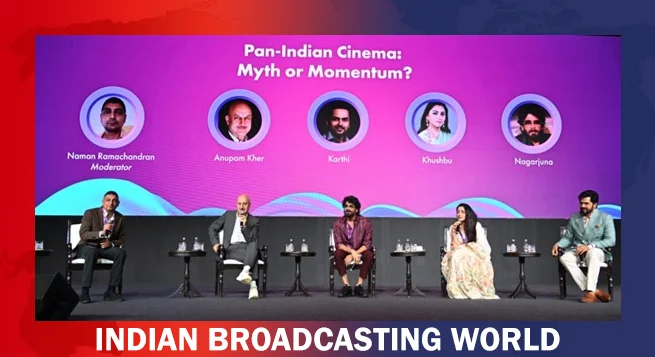 Language no bar; stars say Indian cinema is united by emotion, culture
Language no bar; stars say Indian cinema is united by emotion, culture 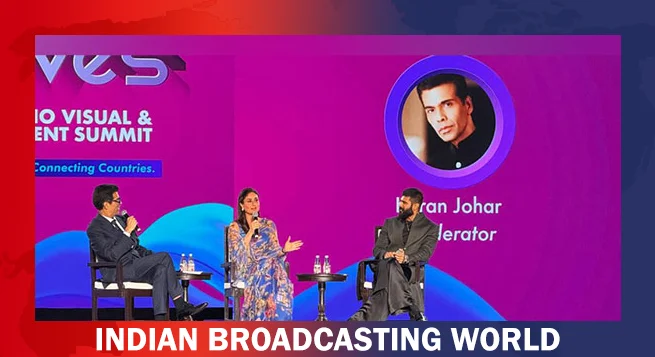 Spielberg recognised me from ‘3 Idiots’, says Kareena at WAVES 2025
Spielberg recognised me from ‘3 Idiots’, says Kareena at WAVES 2025 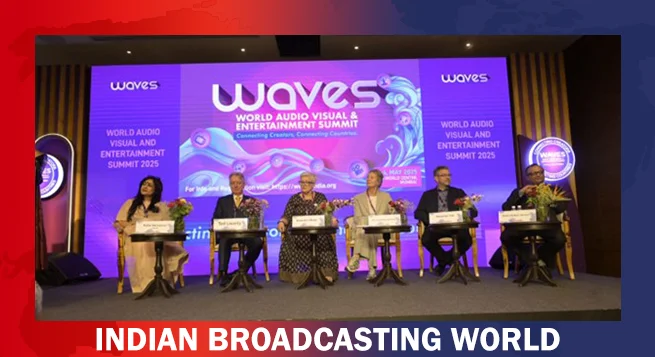 Digital Radio is the future, but analog must co-exist says at WAVES 2025
Digital Radio is the future, but analog must co-exist says at WAVES 2025 



